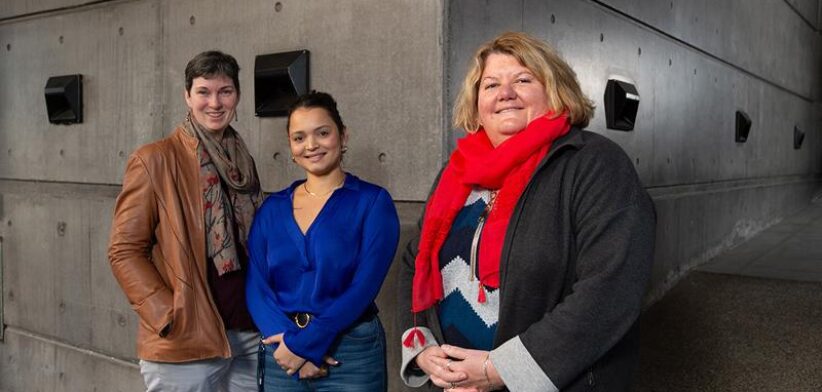Mainstream thinking on the causes of Alzheimer’s may be looking at symptoms as opposed to the root cause of the disease.
New research from QUT suggests there needs to be a rethink on the possible early cause of Alzheimer’s disease.
PhD student Martina Gyimesi is a member of a team that has challenged the accepted view the disease is caused by a build-up of amyloid proteins in the brain.
In an article in Open Biology, Ms Gyimesi and fellow researchers, Dr Rachel Okolicsanyi and Associate Professor Larisa Haupt, from the QUT School of Biomedical Sciences, suggest a paradigm shift in thinking was needed to explore the ‘triggers’ behind toxic amyloid and tau proteins.
Ms Gyimesi said these protein ‘tangles’ in the brain could be symptoms, rather than the initiators of the most common form of dementia.
“The current understanding of Alzheimer’s disease (AD) is that the onset of amyloid and tau protein build-up causes the brain deterioration seen in patients, ultimately leading to death.
“We know that existing treatments targeting these hallmark pathologies offer only minimal relief of symptoms and do not significantly halt the progression of AD,” Ms Gyimesi said.
“Our review offers a broader, alternative view that centres on impaired adult hippocampal neurogenesis (AHN) as a potential early causal factor.”
She said AHN was the intricate process in which mature neurons were generated from human neural stem cells in the adult central nervous system.
Professor Haupt said recent studies had suggested that AHN was diminished even before amyloid and tau proteins appeared, suggesting its initiating role in the early stages of AD development.
“We investigated molecular pathways regulating AHN, focusing on the specialised brain regions that are also responsible for memory formation,” Professor Haupt said.
“We identified disruptions and interactions within these pathways that may result in similar pathologies to pre-clinical AD.”
Professor Haupt said the key to treating AD may lie in understanding how and why the brain loses its ability to continue creating mature brain cells.








